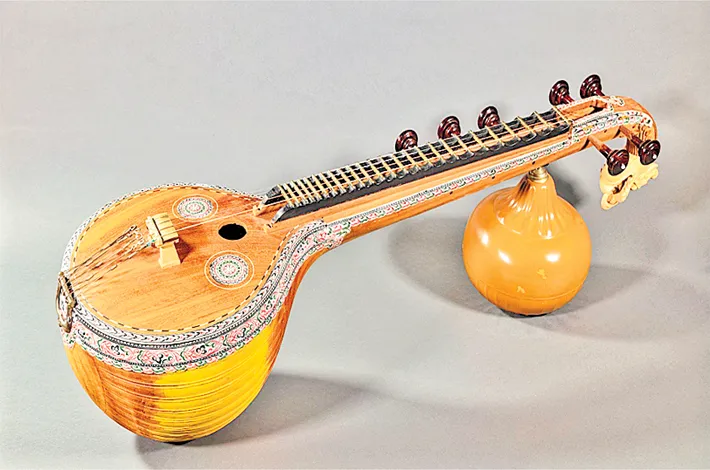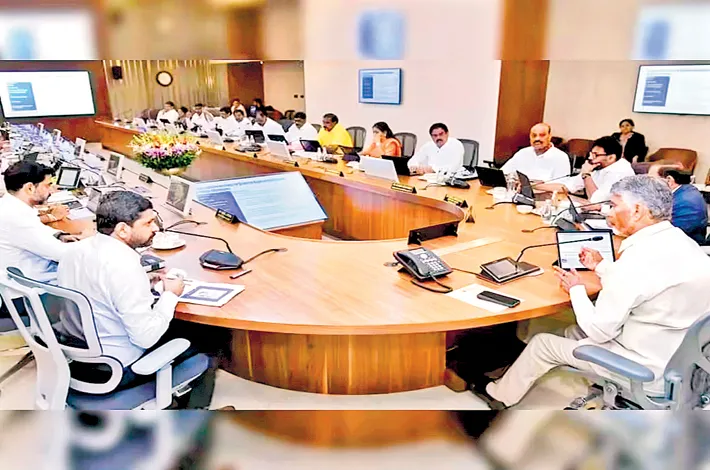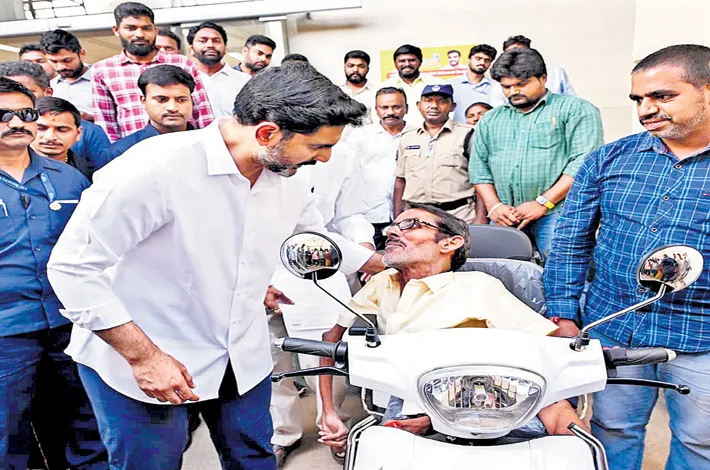Bobbili Veena Strikes a Chord in ‘One District One Product’ Scheme
16-07-2025 12:00:00 AM

Despite growing demand, artists are struggling to keep up due to a shortage of quality wood. Many have urged the government to procure raw materials in bulk from other states and supply them at subsidized rates to sustain this traditional art.
j deepak I vizianagaram
The iconic Bobbili Veena, a symbol of South Indian classical music with a rich legacy spanning over 300 years, has been selected under the “One District One Product (ODOP)” scheme by the Central Government. District Collector A. Ambedkar is scheduled to receive the ODOP award at a special ceremony to be held at Pragati Maidan’s Bharat Mandapam in New Delhi.
The Bobbili Veena had previously earned national and international recognition when it received a Geographical Indication (GI) tag in 2017. Since then, its image has featured on postage stamps and commemorative coins, and it has been showcased at prestigious platforms such as the G-20 Summit in New Delhi and the Global Investors Summit in Visakhapatnam.
Crafted from a Single Block of Wood
What sets the Bobbili Veena apart from others is its unique construction. While most veenas are assembled from two separate pieces of wood, the Bobbili Veena is carved from a single block of jackfruit wood, earning it the name “Ekanda Veena”. This method of construction not only enhances its structural integrity but also produces a softer and richer raga tone.
The wood, traditionally sourced from local jackfruit trees (known as panasa), is now increasingly being procured from Odisha and neighbouring regions, driving up production costs. With a large veena requiring about 10 feet of wood, and smaller ones needing around 2 feet, craftsmen now pay between Rs 800 to Rs 1,000 per foot — a steep rise for this hand-crafted art form.
Despite growing demand, artists are struggling to keep up due to a shortage of quality wood. Many have urged the government to procure raw materials in bulk from other states and supply them at subsidized rates to sustain this traditional art.
In response, the Andhra Pradesh government has announced plans to plant jackfruit trees across North Andhra as part of a rural employment scheme. However, since jackfruit trees take nearly 20 years to mature and yield usable wood, artisans are concerned about the immediate survival of their craft.
Recently, Bobbili MLA Babynayana highlighted these issues in the State Assembly, emphasizing the cultural and economic importance of the veena. The Handicrafts Development Corporation has also conducted a study and submitted its findings to the state government for further action.








